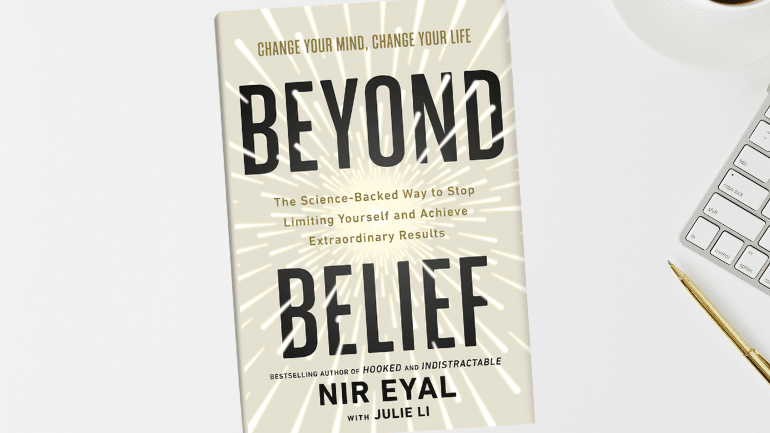Ros Barber: Finding the Focus to Persist and Overcome Creative Fear

At Freedom, we love our users – not just because they use our product, but because they’re cool – cool people working on cool stuff. Academy Award-nominated screenwriters, bestselling authors, editors, journalists, developers, illustrators, designers, coaches, bloggers, explorers, and entrepreneurs – the Freedom community is packed with curious, creative, and passionate go-getters. We love to share their stories and advice, because how better to learn about productivity than from the productive?
Meet Ros Barber.
Ros Barber is a writer, scholar, and speaker based in the UK. Her critically-acclaimed verse novel The Marlowe Papers (2012) was winner of the Desmond Elliott Prize, joint winner of the Author’s Club Best First Novel Award and long-listed for the Women’s Prize for Fiction.
Her academic writing is focused on poets and playwrights of the Elizabethan and Jacobean period, chiefly Shakespeare and his contemporary Christopher Marlowe. Dr. Barber was also the first doctorate in the UK to explore the Shakespeare authorship question and her expertise has given her opportunities to give talks at Shakespeare’s Globe Theatre, present to the British Council, and even narrate an interactive walking tour for ‘The Mysterious Murder of Christopher Marlowe.’
A three-time winner of the Calvin & Rose G Hoffman Prize for a distinguished publication on Christopher Marlowe, she is a lecturer in Creative and Life Writing at Goldsmiths, University of London. In 2018 she became a Royal Literary Fund Fellow.
With a wealth of experience under her belt and accolades to match, we sat down with Ros Barber this week to learn a little more about how she beats distraction to focus on the writing and work that matters most.
How did you know that you wanted to be a novelist and academic and what were your first steps in making this your career?
I felt like I was a writer from a young age. By the time I was nine I was writing stories and sending them off to publishers. I started my first novel about the same time, and tried again when I was eighteen. I didn’t complete a novel until I was thirty-four (by which time I’d had three children) and wrote another three novels before one was finally published. You could say I’m persistent! I started teaching creative writing in my twenties and in 1997 started teaching it at university on a rolling temporary contract. But I had to get a PhD to get tenure. I did my PhD from 2006-2011 and finally got a permanent academic post in 2014. So on both counts I got where I am today by doing what I love with dogged determination! Never give up, folks.
At what point did you realize that tech was taking a toll on your productivity, time, and relationships? When did you know that you had to do something about it?
During the writing of my first published novel The Marlowe Papers I found I was losing a lot of time to email, apps, and the internet more generally. It was a tough thing to write and procrastination was too easy. Even when I wasn’t actively procrastinating, I would feel distracted and twitchy and find it difficult to get focused. That’s when I started looking for solutions and discovered Freedom. I used it on and off for a while. I kept thinking I should be able to just use willpower. But basically, I can’t! So I made it simple for myself and bought the lifetime subscription.

How do you prioritize what gets your time and attention each day?
Paid work has to come first; I currently have two teaching positions, one permanent and one temporary. On days when I’m teaching I try to get a writing session in *somewhere*, but it’s not always easy. When I’m working at home I make writing the priority, attempting to do it first thing and get to other tasks later in the day. I use Freedom to keep me off the distracting stuff and Todoist to organize what needs doing; it integrates with Google calendar so I can schedule tasks and avoid overloading myself.
How do you stay focused and motivated on a daily basis? Do you have a routine, ritual, or process that helps to get into a productive flow?
I’m always pretty motivated because I love what I do. But gaining and maintaining a state of focus tends to be an issue. I have a morning routine now which has helped me feel more energized and tends to lead to more productive days. I usually journal before I start writing, just to empty myself of any distracting thoughts. I’ve found the only way to get into a flow state is just to start writing. There is always resistance to writing, for some reason, but once I get going I’m generally fine. I have a target (on writing days) to do at least five minutes of the novel before 10.30, which helps get me out of the gate. I tend to start by reading over (and lightly editing) what I wrote the day before, and then write whatever seems to naturally follow. I learned long ago that the best way to get into a flow state is to separate writing into two processes, one purely creative, and the other critical. If you try to edit while you write it’s like driving with the brake on. So I push myself to sprint and write faster than I can consciously ‘concoct’, allowing it to be rubbish if needs be, and then edit it afterwards. However, I’ll be the first to admit that I’m not always productive. I have good days and bad days. Sometimes I just can’t overcome my resistance and very little (or no) creative writing gets done. No matter how much I want to be consistently creative, I’m human, and sometimes I just can’t make myself write fiction at all. If I notice in time, I can usually turn to some other kind of writing, like academic writing: I don’t have any friction there at all. It’s so much easier to write factually than to make stuff up. It doesn’t feel personally risky or exposing, and there is a very low chance of anything that feels like failure.
But gaining and maintaining a state of focus tends to be an issue. I have a morning routine now which has helped me feel more energized and tends to lead to more productive days.
How do you optimize your environment for productivity and focus? How do you incorporate Freedom into your schedule?
I try to keep my desk pretty clear (even if my study is not). I use a number of different productivity tools so I know what I’m meant to be doing during the day, and indeed what I have actually done! I found Freedom’s scheduled sessions work best for me, because if I allow myself to turn it on manually, I can procrastinate that too! So it sits underneath everything else, keeping me in check. I have short windows (morning, lunchtime, late afternoon) where I deal with email. I used to have social-media-free ‘morning focus’ and ‘afternoon focus’ sessions set up on Freedom but recently I realized my social media addiction had become so bad that even a lunchtime session was making me feel distracted for the rest of the day. The political situation is the US and UK is currently very disturbing to me! So now I have a complete Facebook and Twitter ban from 9am to 6pm, and my lunchtimes are used for reading. I feel a lot more focused as a result.
What is the most difficult or challenging aspect about your work or working process? Do you have any strategies that you use to help overcome these challenges?
Fear, the writer’s constant companion. When faced with writing fiction, part of me just wants to run away screaming. You put so much of yourself into something, and spend so many hours/months/years on it, and what if it isn’t any good? I seem to have to re-face this every single day. Depending on how debilitating the fear feels, I’ll either trick myself into starting with the ‘I only have to write for 5 minutes’ ruse or I’ll use EFT tapping (Emotional Freedom Technique) to clear whatever is getting in my way, be it anxiety, self-doubt, or abject terror! But as I said, some days I just can’t bring myself to write fiction at all. Fortunately there is always some other writing project in hand, and switching between fiction and non-fiction can be therapeutic.
What resources or tools do you use daily and have found most beneficial to your working process?
I’ve tried lots of different productivity tools but the ones I am sticking with are Freedom, Todoist, and Rescuetime (to keep a track of any slippage!). Recently I have added in Ultraworking’s ‘Lights’ spreadsheet, which seems to be working for me, in terms of making the long-haul delayed-gratification tasks (like writing a book) feel more rewarding on a daily basis. I also have my own spreadsheet for logging progress on the novel.
What projects are you currently most excited about?
Despite my struggles with it, I’m very excited about the current novel in progress, a fictional autobiography of the real-life 18th-century adventurer Mary Read, who lived most of her life as a man. She served as a soldier under the Duke of Marlborough and eventually went to sea and became a pirate. It’s an epic adventure yarn, the longest thing I’ve ever written, and I can’t wait to unleash it on the world. With my academic hat on, I’m also pretty excited about a paper I’m writing which critiques the computer-based tests which can supposedly tell Shakespeare’s style from that of other dramatists of his era. I defected to English Literature from a science and IT background so this project is a pleasing mash-up of my rather varied skill-sets.
What do you do outside of your work routine that helps you stay healthy and productive?
I eat ‘clean’ because I’m on AIP (Auto-Immune Paleo) to keep three autoimmune conditions in check. Meat, fish, a lot of fresh fruit and veg, nothing processed, no grains, no dairy, no nightshades, very little alcohol or coffee. I swim three miles a week and I’ve just started doing ‘Couch to 5K’ so I’m currently running three times a week as well. I’ve had a daily meditation habit for a year now, and I’ve been doing EFT tapping (Emotional Freedom Technique) almost daily for over a decade. I find these thing keep me pretty stable and enable me to overcome most challenges. I used to be a rather chaotic and unstable person so finding stability and introducing routines has been (perhaps counter-intuitively) freeing.
Where are you currently based?
Brighton, UK. Right by the sea.
To learn more about Ros Barber or her work, visit her site at RosBarber.com


